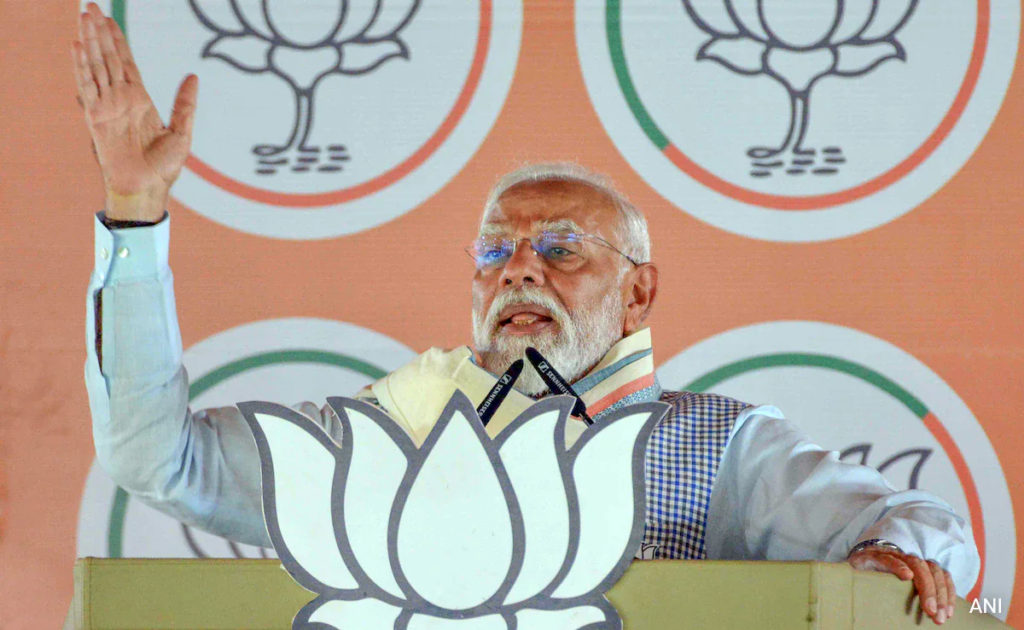The Prime Minister’s Rebuttal
The Prime-In a recent political event in Rajasthan’s Jaipur, Congress chief Mallikarjun Kharge stirred controversy with his comments regarding the abrogation of Article 370, which provided special status to Jammu and Kashmir. Responding to a question on this issue, Kharge questioned its relevance to the people in Jaipur, inadvertently referring to Article 371 instead of the correct provision. Prime Minister Narendra Modi seized upon this opportunity to launch a counterattack, questioning Kharge’s understanding of the significance of Jammu and Kashmir in the broader context of India.

The Prime-Addressing the issue at an election rally in Bihar’s Nawada, Prime Minister Modi expressed his dismay over Kharge’s remarks, highlighting the sacrifices made by the youth of Bihar and Rajasthan for the nation, particularly in the context of Jammu and Kashmir. Modi emphasized that the sentiments expressed by Kharge were unacceptable, suggesting that they echoed the divisive rhetoric of the so-called “tukde-tukde gang,” a term often used to criticize left-wing groups and their supporters.
The Prime-The term “tukde-tukde gang” gained prominence after incidents of anti-national slogans being raised at Jawaharlal Nehru University in Delhi. Modi’s invocation of this term underscores his assertion that such rhetoric undermines the unity and integrity of India. Home Minister Amit Shah echoed similar sentiments, condemning Kharge’s remarks as “shameful” and reaffirming Jammu and Kashmir’s integral status within the Indian Union.
The Prime-The political significance of Jammu and Kashmir cannot be understated, particularly in light of its historical and strategic importance. Modi’s critique of Kharge’s comments reflects a broader ideological divide between the ruling Bharatiya Janata Party (BJP) and the opposition Congress party regarding the handling of Jammu and Kashmir’s autonomy.
The Prime-In the context of the upcoming Lok Sabha polls in Bihar, where Modi addressed the rally, the BJP’s candidate Vivek Thakur, son of former Union Minister CP Thakur, represents the party’s agenda in the region. The BJP’s electoral strategy in Bihar, in alliance with the Janata Dal (United) and other regional parties, underscores the importance of the state in national politics.
The Prime-The seat-sharing arrangement within the National Democratic Alliance (NDA) in Bihar reflects the complex dynamics of coalition politics, with various parties vying for influence and representation. The participation of smaller parties like the Hindustani Awam Morcha (HAM) and Rashtriya Lok Samta Party (RLSP) adds further intricacy to the electoral landscape.
As the campaign trail heats up, the debate over Jammu and Kashmir’s relevance resonates beyond the confines of regional politics, touching upon broader questions of national identity and security. Prime Minister Modi’s forceful response to Kharge’s remarks signals a determination to uphold the unity and integrity of India, while also framing the issue within the context of electoral politics.
In conclusion, Prime Minister Modi’s rebuttal to Mallikarjun Kharge’s comments underscores the political significance of Jammu and Kashmir and reflects the broader ideological divisions within Indian politics. As the election season progresses, the debate over issues such as Article 370 will continue to shape the narrative, highlighting the complexities of governance and democracy in India’s diverse and dynamic political landscape.

[…] a surprising turn of events, a federal judge in Boston has granted permission for nearly 50 migrants who were flown from Texas to Martha’s Vineyard in […]